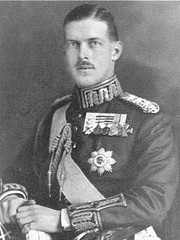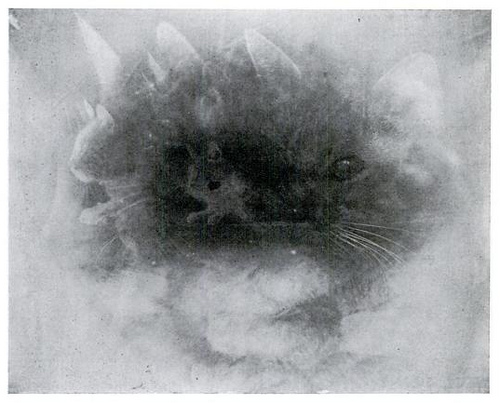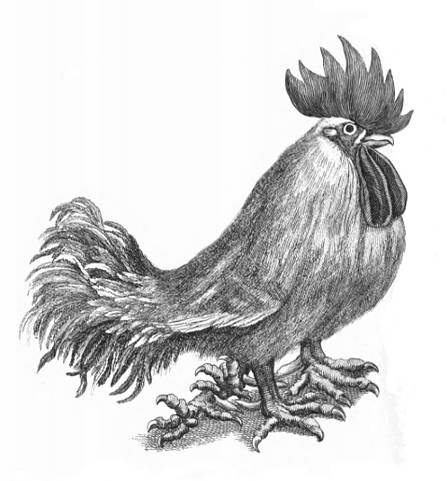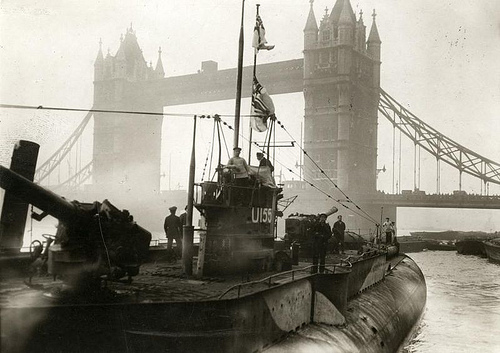hallelujatic
adj. containing hallelujahs
Author: Greg Ross
Bereft
If this should meet the eye of Emma D—–, who absented herself last Wednesday from her father’s house, she is implored to return, when she will be received with undiminished affection by her almost heart-broken parents. If nothing can persuade her to listen to their joint appeal–should she be determined to bring their gray hairs with sorrow to the grave–should she never mean to revisit a home where she had passed so many happy years–it is at least expected, if she be not totally lost to all sense of propriety, that she will, without a moment’s further delay, send back the key of the tea-caddy.
– Advertisement, London newspaper, quoted in Jefferson Saunders, The Tin Trumpet, 1836
Darwin’s Revenge

Some kings expire in bed. Some die gloriously in battle.
Alexander of Greece was bitten to death by monkeys.
He was walking in the royal garden in October 1920 when a monkey attacked his dog. He fought it off with a stick, suffering only a wound on the hand, but the monkey’s mate rushed in and gave him a much more severe bite. He died of blood poisoning three weeks later.
Alexander’s exiled father returned and led the nation into a bloody war with Turkey. “It is perhaps no exaggeration,” wrote Winston Churchill, “to remark that a quarter of a million persons died of this monkey’s bite.”
Immortal Truth
In Scripta Mathematica, March 1955, Pedro A. Pisa offers an unkillably valid equation:
123789 + 561945 + 642864 = 242868 + 323787 + 761943
Hack away at its terms, from either end, and it remains true:

Stab it in the heart, removing the two center digits from each term, and it still balances:
1289 + 5645 + 6464 = 2468 + 3287 + 7643
Do this again and it still balances:
19 + 55 + 64 = 28 + 37 + 73
Most amazing: You can square every term above, in every equation, and they’ll all remain true.
12/03/2016 UPDATE: Reader Jean-Claude Georges discovered that the equalities remain valid when any combination of digits is removed consistently across terms. For example, starting from
123789 + 561945 + 642864 == 242868 + 323787 + 761943,
removing the 1st, 3rd and 5th digit from each number:
x2x7x9 + x6x9x5 + x4x8x4 == x4x8x8 + x2x7x7 + x6x9x3
gives
279 + 695 + 484 = 488 + 277 + 693 (= 1458)
and squaring each term gives
2792 + 6952 + 4842 = 4882 + 2772 + 6932 (=795122).
Amazingly, the same is true for any combination — for example, the equations remain valid when the 1st, 2nd, 4th, and 6th digits of each term are removed. (Thanks, Jean-Claude.)
The Sympsychograph

David Starr Jordan announced an exciting breakthrough in Popular Science Monthly in 1896: He’d asked seven people to think of a cat and then used a special device to capture their mental images and combine them into a composite picture, “the impression of ultimate feline reality.”
Jordan had intended the piece as a “gentle satire” of then-prevalent experiments in mental photography, but to his horror the readers took it seriously:
One clergyman even went so far as to announce a series of six discourses on “the Lesson of the Sympsychograph,” while many others welcomed the alleged discovery as verifying what they had long believed, and an eminent professor soberly opined that my reputation as a psychologist would not be enhanced by such discoveries!
He later wrote that the experience had taught him two lessons: “first, that very few people ever read a sensational article through to the end, even much beyond pictures and headlines, and second, that with Dr. Holmes, I should never again ‘dare to write as funny as I can.’”
Turtles vs. Tigress
It’s commonly said that a queen is worth nine pawns. Is that estimate accurate? In 1846, General Guingret and Lionel Kieseritzky decided to find out:

1. e5 e6 2. d5 d6 3. e4 c6 4. exd6 cxd5 5. e5 b6 6. d4 f6 7. Bd3 g6 8. Be3 Nc6 9. c5 Bg7 10. b4 Bd7 11. b5 bxc5 12. bxc6 Bxc6 13. dxc5 fxe5 14. fxe5 Bxe5 15. Nd2 Rb8 16. Rb1 Qf6 17. Ne2 Qg7 18. O-O g5 19. Nb3 h5 20. Bd4 hxg4 21. fxg4 Kd7 22. f4 Bxd4+ 23. Nbxd4 Nf6 24. f5 e5 25. Ne6 Rxh2 26. Nxg7 Nxg4 27 f6 e4 28. f7 Rbh8 29. f8=N+ Kc8 30. d7+ Kb7 31. d8=N+ 32. Ka8

And White can no longer forestall mate on h1.
So the queen is worth more than nine pawns — if it’s wielded by Kieseritzky.
“An Extraordinary Cock, With Four Legs”

He was hatched near Birmingham, purchased in the market of Alcester, in the county of Warwick, and is now the property of Mr. John Weisman, tailor, residing at No. 6, Lombard Street, Mint Street, Southwark. … He is strongly made, his plumage beautifully variegated and spangled, and of a fine tone of colour. When seen in front he appears to resemble any other animal of the same species, except that his beak is small for his size, and his comb and wattles are considerably larger than usual: but connected with the rump there is a smaller body, which is provided with a second pair of legs, with spurs equal in size to those of the other legs, being three inches in length and remarkably strong. These hinder legs the animal does not employ in walking; they hang down behind the others, not loosely, but on the contrary, in a firm and strong manner. He has two vents which he uses indiscriminately; and crows both loud and well.
– Kirby’s Wonderful and Scientific Museum, 1820
Stairway to Seven
You hate visiting your girlfriend because there’s no elevator in her apartment building. And now she’s moved from the fourth floor to the seventh. How many times longer does this make your ascent?
Hmm

Too Right

Two months before the outbreak of World War I, Arthur Conan Doyle published a curious short story in The Strand. “Danger! Being the Log of Captain John Sirius” told of a fleet of enemy submarines attacking England’s food imports, starving the nation and winning a war:
Of course, England will not be caught napping in such a fashion again! Her foolish blindness is partly explained by her delusion that her enemy would not torpedo merchant vessels. Common sense should have told her that her enemy will play the game that suits them best — that they will not inquire what they may do, but they will do it first and talk about it afterwards.
In a commentary published with the story, Adm. Penrose Fitzgerald wrote, “I do not myself think that any civilized nation will torpedo unarmed and defenceless merchant ships.” Adm. Sir Compton Domvile felt “compelled to say that I think it most improbable, and more like one of Jules Verne’s stories than any other author I know.” Adm. William Hannam Henderson agreed: “No nation would permit it, and the officer who did it would be shot.”
But within months the U-boats’ depredations had begun, and by February 1915 Doyle was being accused of suggesting the idea to the Germans. “I need hardly say that it is very painful to me to think that anything I have written should be turned against my own country,” he told a reporter. “The object of the story was to warn the public of a possible danger which I saw overhanging this country and to show it how to avoid that danger.”
